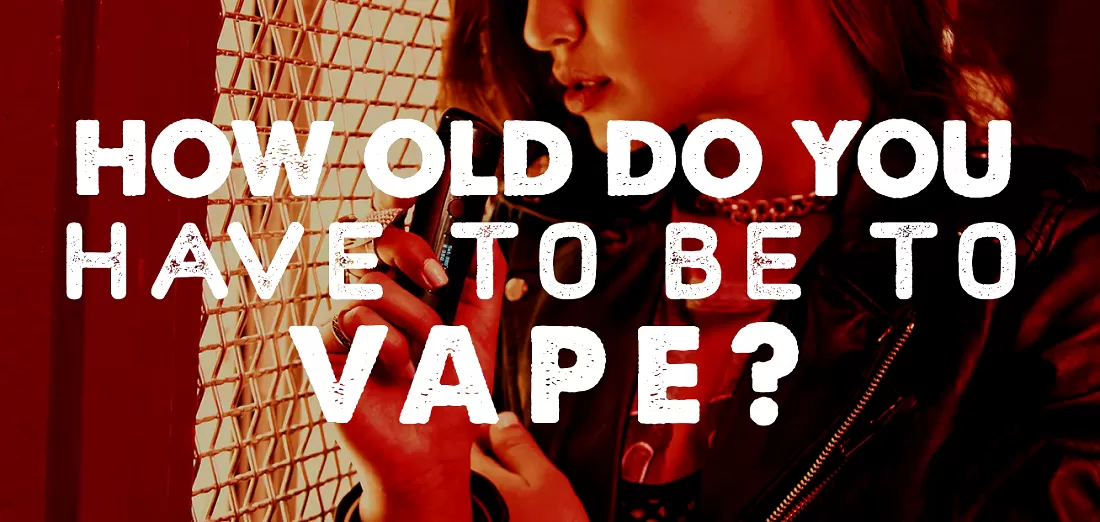How Old Do You Have To Be To Vape
In the United States, the legal age to vape varies from state to state. However, in December 2019, a federal law was passed that raised the minimum age for purchasing tobacco products, including e-cigarettes and vaping devices, to 21. It means anyone under 21 is prohibited from buying or using vaping products.
Despite this regulation, underage vaping remains a concern for health experts due to its potential risks. Using e-cigarettes and other vaping devices has been linked to severe lung injuries, nicotine addiction, brain development problems in adolescents and young adults, and an increased risk of smoking traditional cigarettes later.
Parents need to talk with their children about the dangers of vaping and discourage them from trying it. Additionally, schools have implemented programs to educate students about the risks associated with e-cigarette use and disciplinary measures for those caught violating school policy regarding tobacco use.
Vaping age restrictions
In the United States, the legal age to purchase vapor products varies from state to state. However, most states have set the minimum age at 18 years old. In some states, such as Hawaii and California, the minimum age has been raised to 21. it means individuals under these ages are not legally allowed to buy or possess vaping devices and e-liquids.
Many health organizations recommend stricter regulations on vaping products to prevent young people from becoming addicted to nicotine through these devices. The Centers for Disease Control and Prevention (CDC) reports that over 3 million high school students in America used e-cigarettes in 2020 alone. Studies suggest that early exposure to nicotine can lead to addiction and may negatively impact brain development.
Both retailers and consumers must follow their state’s vaping age restrictions to prevent potential health risks associated with underage use of these products. As research continues on the long-term effects of vaping, we must prioritize public health by limiting access for underage people.
legal consequences of underage vaping
In the United States, it is illegal for anyone under the age of 18 to purchase or possess e-cigarettes or vaping products. However, some states have increased this minimum age to 21. Underage vaping can lead to various legal consequences for minors and their parents or guardians.
Parents can be held responsible for their child’s actions if they provide them with access to vaping products. In addition, minors who are caught using these products may face fines and community service hours as punishment. Repeat offenders may also be required to attend educational programs on tobacco use.
The use of e-cigarettes among minors is a growing concern, and lawmakers and law enforcement agencies are taking steps to combat underage vaping. Parents and guardians must educate themselves on the legal consequences of underage vaping to prevent their children from engaging in this harmful behavior.
What is the minimum age requirement for purchasing and using vape products
The minimum age requirement for purchasing and using vape products differs from state to state. However, the legal age is mostly set at 18 years and above. In some states like California, Hawaii, New Jersey, Maine, Oregon, and Washington, DC., the legal age is raised to 21 years old.
It is important to note that some cities and counties have also passed laws regarding the use of vaping products. For instance, San Francisco has banned the sale of all e-cigarettes within city limits starting in early 2020.
Moreover, it is worth mentioning that minors are prohibited from purchasing or using vape products regardless of their location. Retailers must check identification before selling vape products to ensure local laws and regulations compliance. Additionally, parents should educate their children on the dangers of vaping and discourage them from trying it until they reach the legal age or older.
What are the potential consequences of underage use?
Underage vaping is a growing issue with potentially severe consequences. The legal age for purchasing and using electronic cigarettes or vaping devices varies by state, but the minimum age is typically 18. Unfortunately, many minors have found ways to obtain these products and are using them without fully understanding the risks.
One potential consequence of underage vaping is addiction. Nicotine is highly addictive, and studies have shown that youth who use e-cigarettes are more likely to transition to smoking traditional cigarettes in the future. Additionally, underage users may experience negative health effects such as lung damage and respiratory issues.
Another consequence of underage vaping is legal trouble. In some states, minors are illegal to possess e-cigarettes or vape pens, and penalties can include fines or jail time for repeat offenses. Parents may also face the consequences if they provide these products to their children or knowingly allow them to use them. Parents, educators, and lawmakers need to educate youth on the dangers of vaping and enforce laws designed to protect minors from accessing these harmful products.
Frequently Asked Questions
What is vaping?
Vaping is inhaling and exhaling vapor from electronic cigarettes or other devices.
How old do you have to be to vape?
The legal age to purchase and use e-cigarettes or vaping products varies from country to country, state to state, and city to city. In the United States, the minimum age requirement ranges from 18-21 years, depending on the location. It’s important for individuals under the legal smoking age not to attempt to use any nicotine-containing product.
Why is there an age limit on vaping?
Like traditional cigarettes, e-cigarettes contain nicotine – a highly addictive substance that can cause harm especially in younger users whose brains are still developing. Restricting access helps reduce the chances of young people taking up these harmful habits and becoming addicted later in life.










